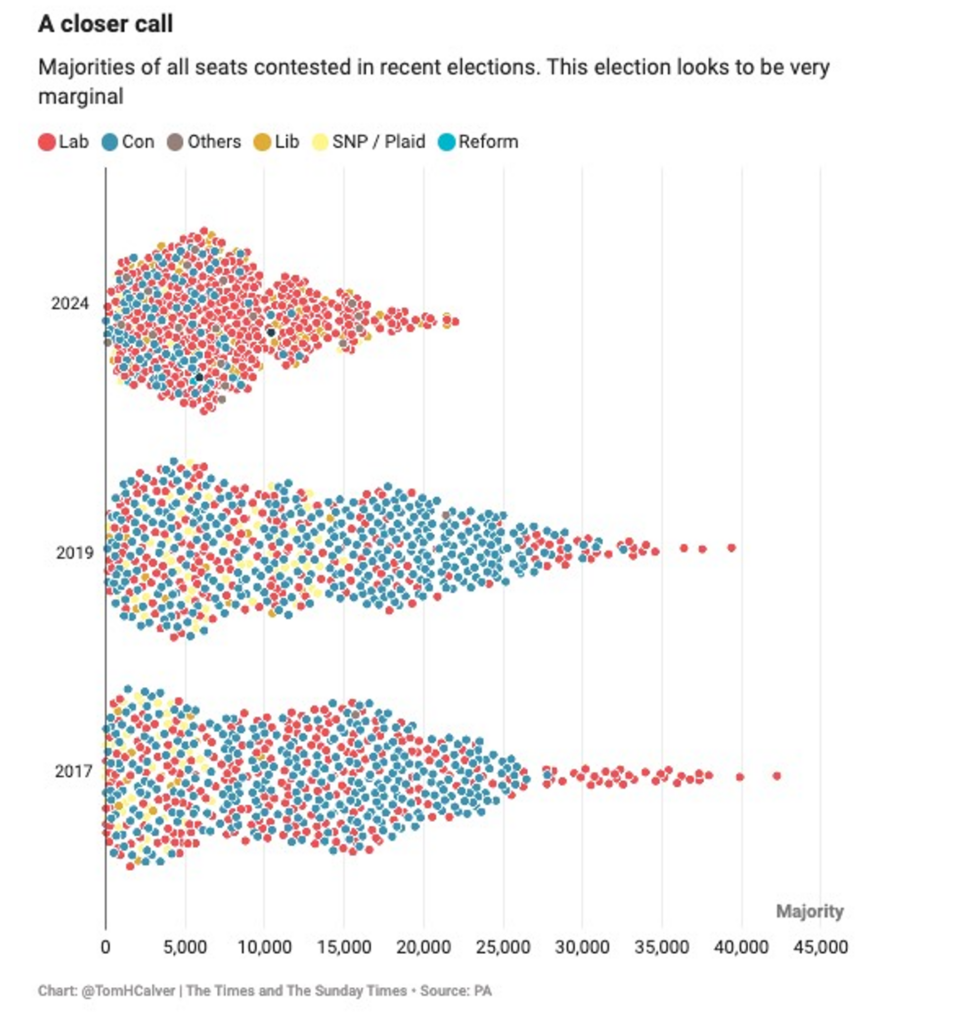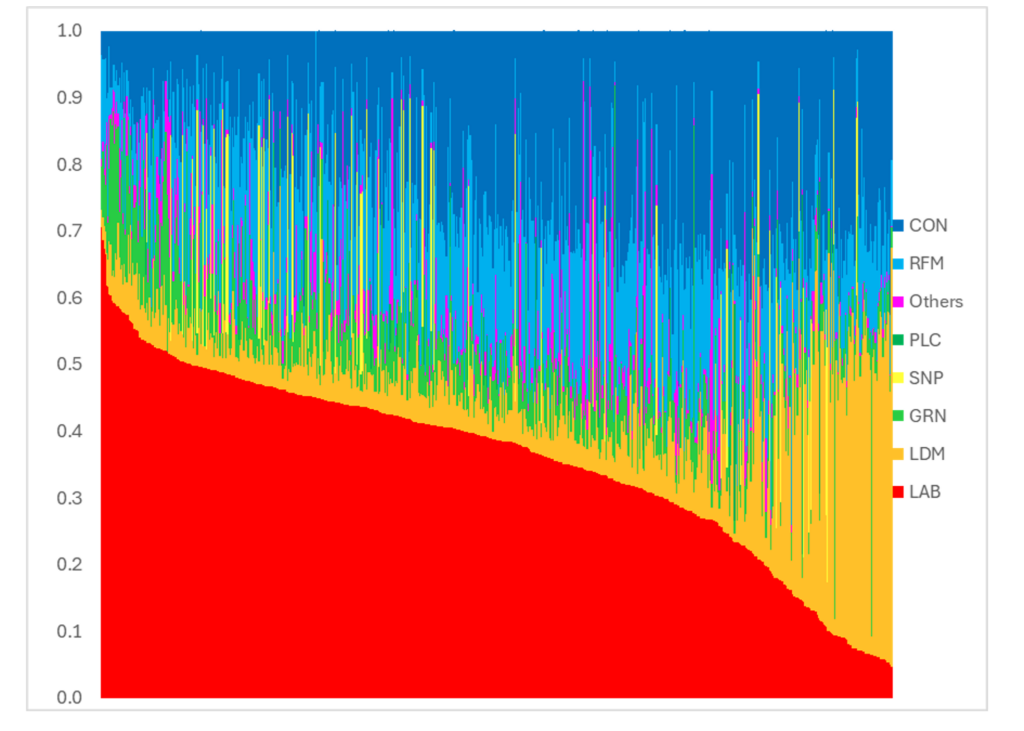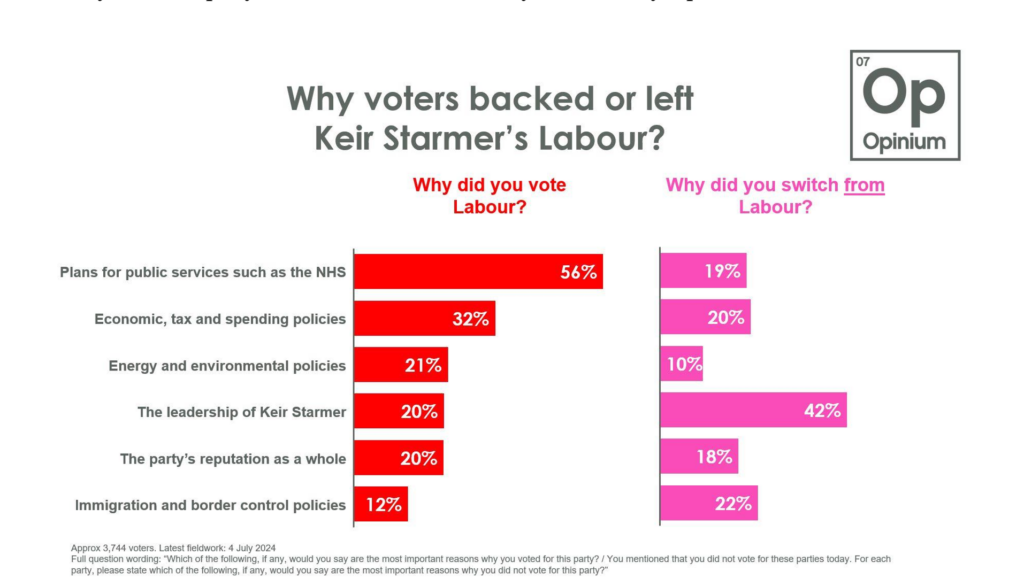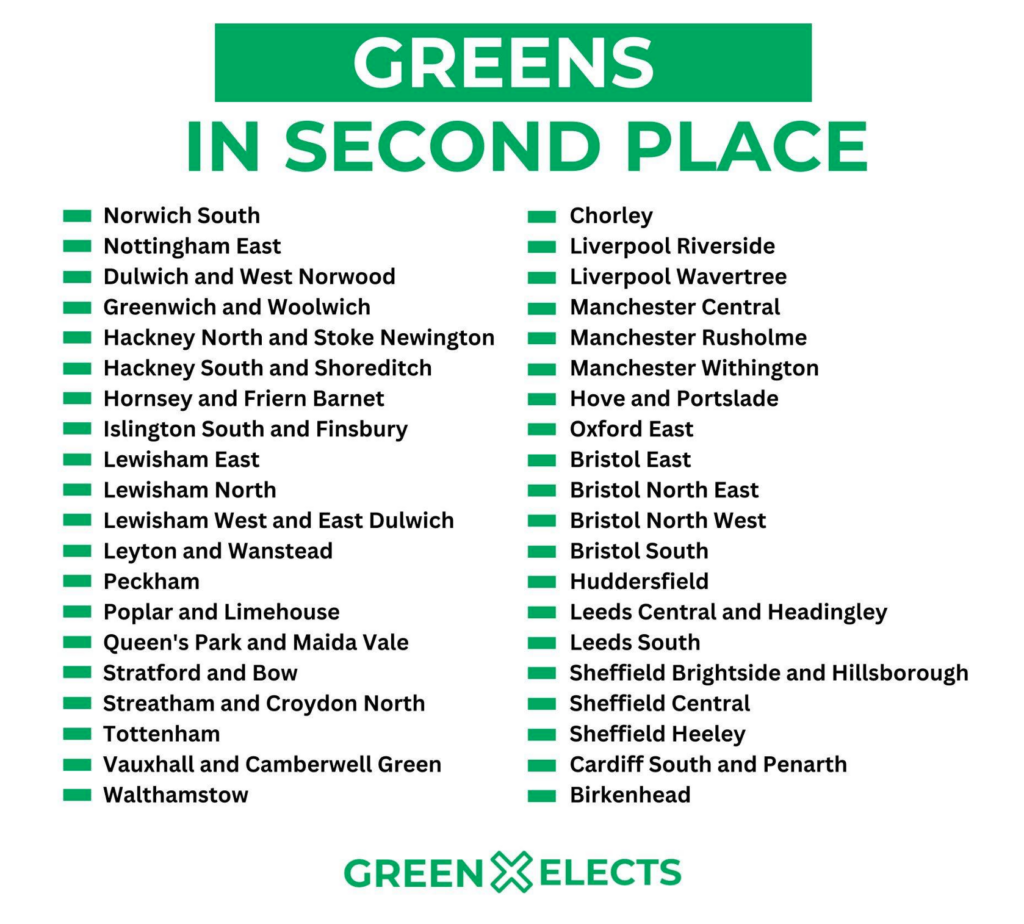I’m a leftist who didn’t vote Labour; why am I happy with the election results?
As the title says, and many here will have gathered from my posts, I am left wing and not in the Labour Party. So you may expect me to be annoyed that Labour have got a massive majority to do with what they wish. And, to some extent, I am. But, when it comes to the actual results of the election and staying up on election night, I was and still am pretty happy – and so were a lot of other people who are on the left and not fans of Starmer’s Labour. But why?
The numbers
The boring bit first – the number crunching. This election saw Labour win 411 seats, with an increase in seats of 211! Clear slam dunk win, no? Increase in seats means more legitimate, more power! Well, yes, in our arguably undemocratic system seats in parliament do not necessarily match to the number of votes or proportion of votes you get at the national election. But if you look at the number of votes, you notice a few things.
Firstly, Labour had a reduced total vote of around half a million votes – so fewer actual voters went out to support the Labour party compared to 2019. Secondly, the Green Party of England and Wales (of which I am a paid up member, so bias declared) increased their total votes by over a million compared to 2019. Sinn Fein and Plaid Cymru also saw their raw vote totals increase – although by much more modest amounts.
These raw votes are the pebbles that start the avalanche for the joyous lefty, though, because it wasn’t just the national vote for Labour that was smaller – their majorities in many of their seats got smaller or were not very big. This great graph from Tom Calver at The Times and Sunday Times shows this:

You can also see from this graph here (put together by Heinz Brandenburg, a political scientist who teaches at the University of Strathclyde Glasgow, who tweeted it out on his Twitter @HzBrandenburg) how efficient the vote shares had to be to get this to happen:

In many of the seats where Labour took a seat from the Tories, the Liberal Democrat vote share was small, and as soon as the Labour candidate looked unviable, the Liberal Democrat vote share jumps. Labour’s vote was highly efficient, and needed to be. This looks good from the point of view of winning an election with the minimum number of voters possible – but from the point of view of being actually popular, not so much. Labour’s majority is a mile wide and an inch deep, and that is bad for them in the long term and good for those of us on the left.
The Labour Party Decides
It is clear that the Labour party lost a lot of voters, and some of the seats noted above, due to Independents. It’s also clear that some winnable seats were lost, such as the seat for Chingford and Woodford Green, and others only just held, such as Ilford North, in the face of challenges from Independents. In the case of Chingford and Woodford Green, the Labour party changed out what would have been a winning candidate for someone else with no sensible reason given.
In Islington North, the seat of Jeremy Corbyn, the Labour party hoped to close the door on his period of leadership by winning his seat – and threw a lot of resources at the seat to do so. And yet the seat was held. This shows us something that the Labour party may have to learn – that even those who have historically voted Labour and may even be sympathetic to the Labour party can only pushed so far by the leadership. Starmer and his allies have held a tight grip on the party since taking the reins from Corbyn, and many people who previously voted Labour did not like this and were willing to walk away from the party because of it – as shown by this work by Opinium:

Starmer’s leadership of the party was the single biggest factor for why people who had previously voted Labour decided not to vote Labour by a wide margin. These people did not sit out the election, though, they organised and they voted elsewhere; for Independents and for Greens. The growth of the Greens gives me some hope, as a partisan and a left winger, that pressure will grow against Labour from the left as GPEW emerges as the new left party of England and Wales, with Labour firmly positioning itself as a centre / right party. By winning in Bristol Central the Greens have got a shot over Labour’s boughs, and proved that the party does bleed. By showing that the party has the ability to persuade voters and the resources to marshal a campaign to activate those voters, the Greens will be a threat to Labour at a national level. Already GPEW have 40 seats where they came second, the majority of which are currently held by Labour.
But GPEW aren’t only going to affect politics by potential future growth in a GE in 5 years time – they will change politics now by presenting a policy alternative that will resonate with those on the left and creates a vision for what a real left wing government could do.
Already the Greens have set a challenge for the Labour party for what to do in the first 100 days and, whilst I’m sure most people here and in the media will ignore it, it gives the Greens something to run on, something to point to and show how they would differ from Labour (https://greenparty.org.uk/2024/07/06/10-steps-labour-must-take-in-the-first-100-days-to-show-theyre-serious-about-real-change/).
It doesn’t have to push Labour to do anything, but it does show the many voters who seemingly held their nose to vote for Starmer this time around that there is going to be an alternative next time – and that there is more you can demand from your politicians.

The policies
Of course, I can’t ignore the policy impact of this. I’m not going to claim that the very quick turn around from Labour on Israel’s actions in Palestine are only because of the losses to Independent candidates who ran predominantly on a platform that discussed Gaza, but I think it is a factor. The way Labour campaigned and spoke about Palestine before the election and how they are acting now after the election are very different. If pressure can be applied on this issue, where else might it be able to be pushed?
This is the true reason for the optimism of the left. For all the claims that Corbyn was popular due to a cult of personality the real reason the left liked and defended Corbyn was because we trusted his policy positions and to deliver on them; to make the UK closer to a social democracy rather than a neoliberal hellscape.
And it looks like this Labour government has a soft fleshy underbelly and can be bullied into moving leftwards in the face of a parliamentary majority that is built on lots of individually small majorities. Wes Streeting won by roughly 500 votes; Labour will of course still push through the neoliberalisation and privatisation of the NHS but maybe, just maybe, the thought of only having a majority of 500 will make Wes slow that down, or consider to do less of it. With the Greens at their heels, maybe Starmer will let Ed Miliband do some of the very popular stuff he wants to rather than doing fig leaf environmentalism.
Stealing from Melanchon, whose left alliance win shocked us all, I’m not saying the British left won this election, nor is it an opportunity to create a paradise. But it sets us up well to go into the future and put an end to hell.
The left will now mobilise and organise and show the Labour party that we cannot be ignored, in the knowledge that we can vote for other parties and candidates if we want real left wing politicians, and that the Labour party majority is built on soft foundations.
Starmer is not personally popular, his policies are not popular, but left wing policies are. Voters for the Conservatives or Reform UK are never going to be persuaded to vote Labour – so if they are the only voters Labour panders to they will alienate more of their left wing and parties like the Greens will grow. And if Labour panders to us – good, we win, because the left doesn’t care which colour shirt the politician wears as long as they do better policies.
148grss
This is the debut piece for PB by 148grss